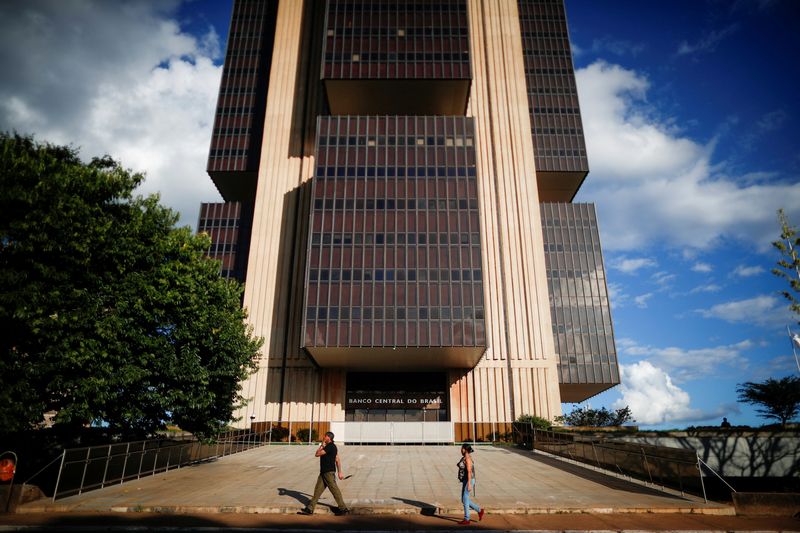BRASILIA (Reuters) -Brazil's government debt as a share of gross domestic product fell to 78.5% in March, the lowest level in almost two years, with improved revenues in states and municipalities leading to a new primary surplus for the month.
That compares with a gross debt of 79.2% of GDP in February, to the best result since April 2020 (78.4%), when the country was beginning to be hit by the coronavirus pandemic.
Booming revenue, helped by a surge in commodities, has lifted the government's budget, while expenditures have not grown at the same pace due to a constitutional spending cap.
The public sector surplus excluding interest payments reached 4.3 billion reais ($846.54 million) in March, which led to a surplus equivalent to 1.37% of GDP in the 12 months.
Brazil's states and municipalities posted a 11.9 billion-reais surplus in the month, once again benefiting from larger federal government transfers and higher fuel-related revenues.
State-owned companies recorded a 242 million-reais surplus and the central government posted a 7.8 billion-reais deficit.
The figures, released late due to a continuing strike by central bank employees, also showed a nominal result, which includes the payment of interest on the public debt, of a 26.5 billion-reais deficit in March.

The 12-month nominal deficit dropped to 3.15% in March, from 3.38% in February.
($1 = 5.0795 reais)